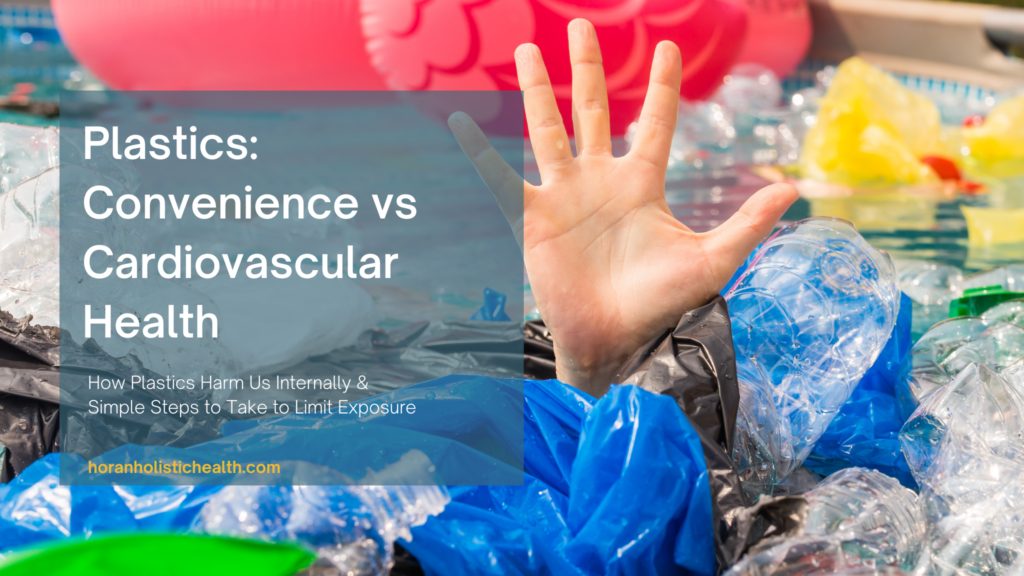Plastics: Convenience vs Cardiovascular Health

Dangers of Prolonged Plastic Use
Plastic. It’s everywhere. Yes, we rely on its value as far as convenience and cost. However, making our lives easier and cheaper is coming at a price. Did you know that prolonged plastic use comes with health risks? From hormone disruption to cancer, infertility, and now, cardiovascular damage.
A new study published in the New England Journal of Medicine, based on data from more than 200 people undergoing surgery due to stroke risk shows that nearly 60% had microplastics – or even smaller nanoplastics – in a main artery. Scarily, those 60% are “4.5 times more likely to experience a heart attack, a stroke, or death in the (approximately) 34 months following the surgery than those with plastic-free arteries.”
Limiting Day-to-Day Plastic Exposure
We don’t yet know the full scope of how plastic affects our bodies, and each body reacts differently to plastic – how it’s able to remove and break it down. For me and my family, I choose to limit our plastic exposure to mitigate future health concerns. We do this by using:
- Cloth produce bags
- Glass and stainless steel food and drink containers
- Bringing our own container for leftovers when we go out for a meal
- High-quality water filter
- Whole food options, purchasing less processed & pre-packaged food
- Good laundry practices – clothes are a huge source of microplastics. We reduce exposure by:
- Doing fewer, more fully loaded loads
- Using cold water
- Using less detergent
- Drying laundry on a clothesline
Micro / Nano Plastics & Inflammation
The study also reveals that those who have micro or nano plastics in their blood often have higher level biomarkers for inflammation. It’s well-known that more inflammation places people at greater health risk. So if you’re already dealing with plaque or other cardiovascular issues, those plastics only make a bad situation worse.
While some exposure is out of our control, regardless of “best practices,” the less you interact with plastic, the better your future health. To learn more about holistic health approaches to boost your cardiovascular wellness, let’s talk. I’m diving into more cardiometabolic knowledge to help clients who want to adjust their overall approach to health to include proven functional nutrition methods.
 Get in touch with Christopher Horan, CR, CFNC, to discuss how a holistic nutrition approach can transform your overall health. He is a Certified Functional Nutrition Counselor (CFNC) through the Functional Nutrition Alliance, as well as a longtime Certified Rolfer (CR). His practice offices are in Tacoma and Bellevue, Washington.
Get in touch with Christopher Horan, CR, CFNC, to discuss how a holistic nutrition approach can transform your overall health. He is a Certified Functional Nutrition Counselor (CFNC) through the Functional Nutrition Alliance, as well as a longtime Certified Rolfer (CR). His practice offices are in Tacoma and Bellevue, Washington.
Reference Sources:
https://www.nejm.org/doi/full/10.1056/NEJMe2400683
Laundry Source: https://www.pbs.org/newshour/science/laundry-is-a-top-source-of-microplastic-pollution-heres-how-to-clean-your-clothes-more-sustainably